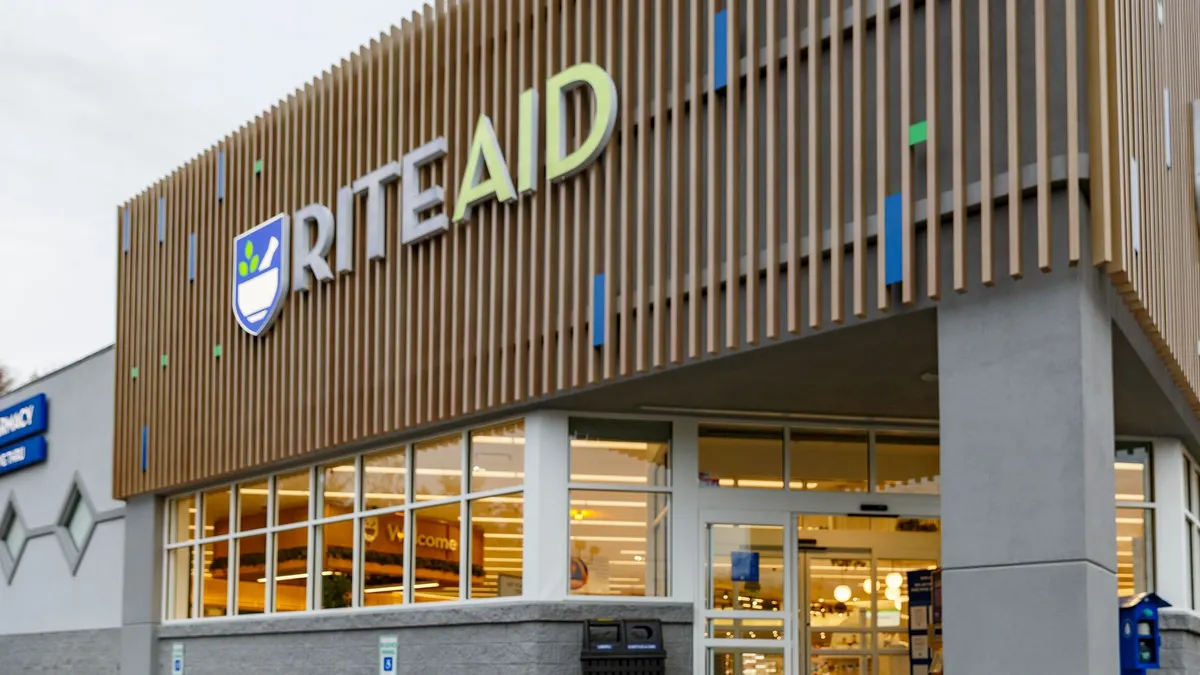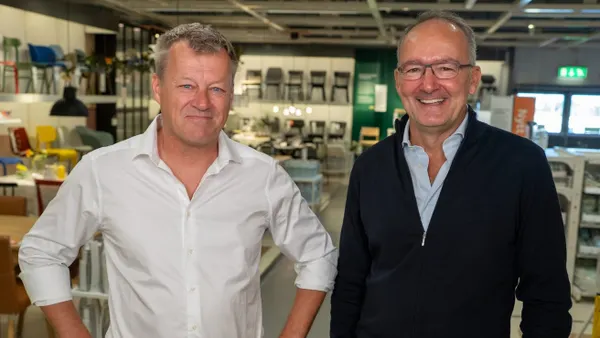Dive Brief:
- Rite Aid has gotten the green light from a judge to pay its critical suppliers and other vendors after filing for bankruptcy earlier this week with hopes to restructure.
- A federal bankruptcy court in New Jersey granted Rite Aid interim permission to pay $138 million on trade claims dating before its Chapter 11. The drug store retailer requested that amount to pay outstanding bills to critical vendors, lien holders in its supply chain and suppliers who shipped goods within 20 days of its Chapter 11 filing.
- Also this week, Rite Aid filed a legal action against McKesson over a supply dispute after the pharmaceutical distributor threatened to stop shipping medications to the retailer post-bankruptcy. The companies reached a quick settlement deal on the matter, according to press reports.
Dive Insight:
For nearly any retailer in bankruptcy, the continued supply of goods after a filing is critical. That is true whether a company aims to restructure or sell itself. The stakes are even higher when the relevant goods are patient medications.
Along with products for its front-of-store retail operations, suppliers of pharmaceuticals “provide life-sustaining medical products” to Rite Aid, the company said in its motion to pay those vendors.
“Any disruption to the Debtors’ supply of healthcare products and other consumer goods risks significant and irreparable harm to the Debtors’ businesses, as customers would almost certainly turn to the many alternative sources in the market for such products and services when faced with the prospect of delayed access to prescriptions and inventory or price increases necessitated by inventory shortage,” the company added.
The company plans to pay $68 million owed to its critical vendors and another $25 million pending a final order. Of those vendors with claims on orders shipped within 20 days of its Chapter 11, Rite Aid plans to pay $65 million with the interim order and another $40 million with a final order from the court.
McKesson stands as the single-most important supplier to Rite Aid’s pharmacy business. In its complaint against the drug giant, Rite Aid said that McKesson-supplied goods account for 90% of its retail pharmacy sales. During its fiscal year that ended in April, Rite Aid paid McKesson some $9 billion, accounting for about 55% of Rite Aid’s yearly spend for its retail pharmacy business.
The two companies’ relationship hit a snag, however, as the retailer approached a long-anticipated bankruptcy.
In Rite Aid’s telling, the two companies were in negotiations around their supply agreement, which doesn’t expire until 2029. Rite Aid reached out more than a month prior to its filing to “discuss a path forward in the event of a potential chapter 11 filing,” the company said.
After back-and-forth proposals, Rite Aid said that McKesson demanded full payment of $700 million owed to it at the time. That was followed by an ultimatum from McKesson CFO Britt Vitalone that the financially struggling Rite Aid pay in advance for all future shipments while in bankruptcy or McKesson would stop shipping, per an email from Vitalone that Rite Aid submitted in its complaint.
Were McKesson to stop shipping products — a move Rite Aid argued would be illegal under the bankruptcy code — it would essentially have obliterated Rite Aid’s pharmacy inventory overnight.
Attorneys for Rite Aid said at a hearing the company and McKesson had reached a settlement deal on Tuesday that covers the retailer’s tenure in bankruptcy, according to media reports from the hearing.
When Rite Aid filed for Chapter 11, McKesson was by far its largest unsecured creditor, with $668 million in trade debt to the company. The company also owed $35.4 million to flu vaccine maker Seqirus USA and $11.8 million to drug distributor Amerisourcebergen, among others.
















